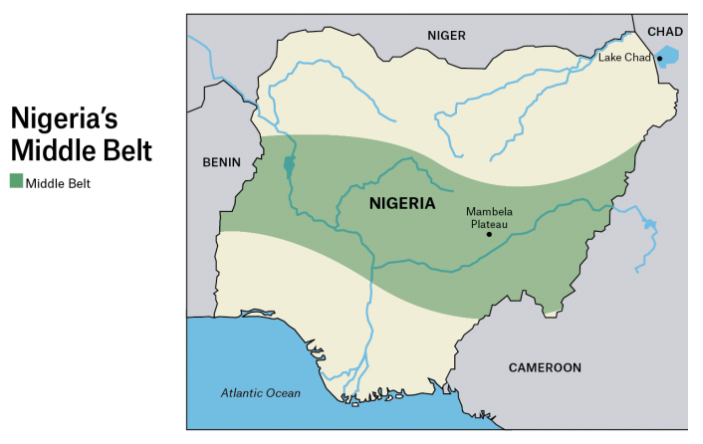Preventing crises in Nigeria’s Middle Belt region has seemed impracticable only because alternative approaches to containing and preventing recurrences have not been explored.
The approach used so far have mainly been kinetic, that is, involving the use of force or military prowess in dealing with the outbreaks of violence and hostilities and the setting up of enquiries to look into the immediate and remote causes of the same.
These approaches do not take into cognizance the fact that internal conflicts are hardly resolved through the use of force alone and that finding solutions cannot be breathed down from above.
In situations where that is the case, groups become militarised and acquire more weapons to defend their communities consequently making all entreaties to peace more difficult.
- Inside Ore, a melting pot of travellers, traders
- Think the North will just be fine if Nigeria breaks? It’s time to think again
From experience, using alternative approaches that involves the people rather than state action proves more effective. The Institute for Integrated Transitions ( IFIT) through its initiative, the Middle Belt Brain Trust (MBBT), for instance advocates for the development of Grievance Management Systems that are people oriented as a way of sustaining and piloting alternative efforts towards conflict resolution.
This promotes the idea that the initiatives for conflict resolution and implementation of agreed measures have to come from the people and all sections of affected communities including traditional institutions; cultural groups; religious leaders; women and youth groups. Communities are empowered to design and support the implementation of solutions in line with existing laws and best practices.
Bringing together a diverse group of stakeholders will enrich the solutions arrived at and will also leverage on the customary strengths of the communities.
This is because they know the terrain and the actors better and feel a sense of obligation and ownership if empowered to drive the processes through voluntary compliance, thereby reducing the incentive for violence and bloodshed. That way, the communities get to see the initiatives as theirs, get to own it and see it to its thorough implementation and preservation.
In the past, farmers and herders have on their own resolved disputes by designing community based rules and response enforcement mechanisms that are backed and equipped by the state.
Where this exists, it can be developed to take into cognizance contemporary issues and brought forward and put to use today to tackle the perennial problem of farmers/ herders clashes which has been rampant in the Middle Belt.
The MBBT has experts in both kinetic and non-kinetic approaches who have undertaken researches whose conclusions reinforce the suitability of the community based grievance management systems used in conjunction with other approaches.
One key benefit of a community grievance management system is that it increases trust and helps to build social cohesion amongst groups. By giving groups an opportunity to address their real and perceived grievances, denying criminal elements the opportunity to leverage on social fault lines and divides to carry out large scale violence.
The Interfaith Mediation Centre which I co-chair has in the cause of its various interventions in conflict zones, used some of these non-kinetic approaches in resolving many disputes across the globe.
Communities in the Middle Belt, therefore, need to learn and adapt from these researches and experiences to manage crises in the region and ensure lasting peace and security.
This is important because there are bound to be more movement of farmers and herders to the region in future due to increasing competition for access to land and land resources.
But with multiple approaches and integrated actions from the communities and government, conflicts in Nigeria’s Middle Belt region would be prevented and better managed.
Imam Dr. Mohammed Nurayn Ashafa, who wrote this piece, is a two-time nominee for the Nobel Peace Prize and co-executive director of the Inter Faith Mediation Center. He is also a peace ambassador under United Nations Alliance of Civilisation.

 Join Daily Trust WhatsApp Community For Quick Access To News and Happenings Around You.
Join Daily Trust WhatsApp Community For Quick Access To News and Happenings Around You.


